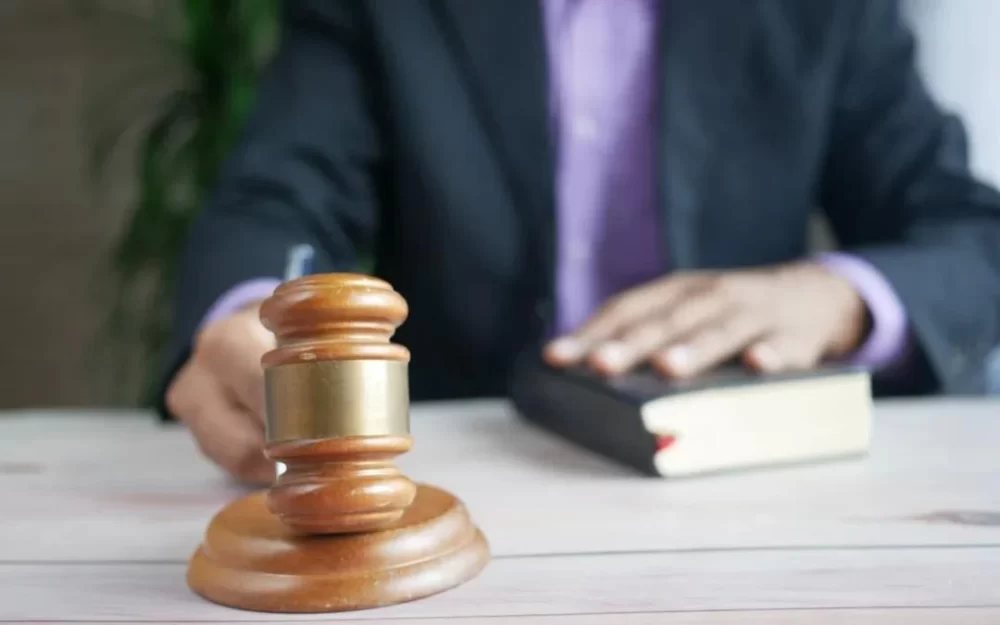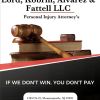- Why a Criminal Lawyer Matters for Your Trial
- How Expert Legal Defense Impacts Trial Outcomes
- Real Case Example Demonstrating Legal Representation Value
- Choosing the Right Criminal Lawyer for Your Case
- Professional Advice from Fred Miller Lawyer
Why a Criminal Lawyer Matters for Your Trial
Facing a trial can be one of the most stressful experiences in a person’s life, and having a criminal lawyer by your side is absolutely crucial. A criminal lawyer’s role extends far beyond simply appearing in court; they navigate complex legal systems, protect your rights, and craft a defense strategy tailored to your specific case. Trials involve intricate rules of evidence, procedural nuances, and negotiation tactics that only an experienced lawyer understands deeply.
Without professional representation, defendants risk being overwhelmed by the legal process, leading to potentially harsh penalties. Moreover, a criminal lawyer ensures that all aspects of the case are thoroughly investigated, witnesses are properly cross-examined, and the prosecution’s claims are challenged effectively. Their expertise often means the difference between a fair trial and an unjust outcome.
Understanding Legal Rights and Trial Procedures
Many defendants enter the courtroom unaware of their full rights or the formal trial procedures that govern criminal cases. A criminal lawyer educates their client about these rights—such as the right to remain silent, the right to a jury trial, and the right to present evidence—which is essential for avoiding mistakes that can jeopardize a defense.
Furthermore, the legal landscape is constantly evolving. What might have been acceptable defense strategies years ago could now be outdated due to new case law or changes in legislation. A dedicated lawyer stays updated with these developments to provide the most effective defense possible.
How Expert Legal Defense Impacts Trial Outcomes
The quality of legal defense directly influences the outcome of a criminal trial. Expert criminal lawyers are adept at identifying weaknesses in the prosecution’s case and highlighting mitigating circumstances that could reduce or dismiss charges. This expertise stems from years of courtroom experience and knowledge of how judges and juries respond to different types of evidence and argumentation.
Effective lawyers also excel in negotiation, often securing plea deals that offer better terms than a jury verdict might deliver. Even in cases that proceed to full trial, a criminal lawyer’s ability to strategically challenge evidence and present compelling narratives can lead to acquittals or significantly lighter sentences.
Strategic Defense and Evidence Handling
One important factor that sets criminal lawyers apart is their skill in evidence handling. They ensure that all evidence admitted in court complies with legal standards. Illegally obtained evidence, for instance, can often be excluded, weakening the prosecution’s position. A criminal lawyer knows how to file motions to suppress such evidence and can argue for the exclusion of unreliable or prejudicial testimony.
Real Case Example Demonstrating Legal Representation Value
Consider the widely discussed case of John Doe (name changed for privacy), who was charged with a serious crime based largely on circumstantial evidence. Initially, John was overwhelmed and unsure how to defend himself. After hiring a skilled criminal lawyer, the defense team uncovered critical inconsistencies in witness statements and identified that the key piece of evidence was mishandled by the police.
This led to the exclusion of that evidence and a reevaluation of the charges, ultimately resulting in John’s acquittal. This case highlights the tangible difference a competent criminal lawyer can make, turning a seemingly hopeless situation into a fair and just trial process.
Lessons from Real Cases
Many such examples emphasize that without proper legal representation, defendants risk wrongful convictions or unnecessarily severe punishments. The courtroom is not a level playing field, and having someone who understands the rules and can fight aggressively for your rights is indispensable.
Choosing the Right Criminal Lawyer for Your Case
Finding the right criminal lawyer requires more than just a quick search. Factors such as experience in relevant legal fields, track record with similar cases, communication style, and availability play a vital role in selecting an effective defense attorney.
Clients should seek lawyers who listen carefully, explain legal terms clearly, and develop a personalized defense strategy rather than applying a generic approach. Transparency about fees and case progress also builds trust and reduces stress throughout the trial process.
Questions to Ask Potential Lawyers
Before hiring a lawyer, consider asking:
- How many cases similar to mine have you handled?
- What is your approach to building a defense?
- How will you keep me informed during the trial?
- What outcomes can I realistically expect?
These questions can help ensure that you engage a criminal lawyer who is not only qualified but also a good fit for your needs.
Professional Advice from Fred Miller Lawyer
When navigating the complexities of criminal trials, Fred Miller Lawyer stands out as a trusted resource. Their team of seasoned criminal lawyers is dedicated to protecting clients’ rights and providing strong courtroom representation. Whether facing minor charges or serious accusations, Fred Miller Lawyer offers personalized legal strategies aimed at achieving the best possible outcomes.
For anyone confronting a trial, consulting with professionals like those at Fred Miller Lawyer is an important step. Their expertise ensures that your case receives the thorough attention and skillful defense it deserves, helping to reduce uncertainty and anxiety during difficult times.


 marrone law firm philadelphia pa
marrone law firm philadelphia pa attorney skye lazaro
attorney skye lazaro 899 logan st denver co 80203
899 logan st denver co 80203 alvarez elizabeth nj
alvarez elizabeth nj flynn law office
flynn law office ronald shook
ronald shook